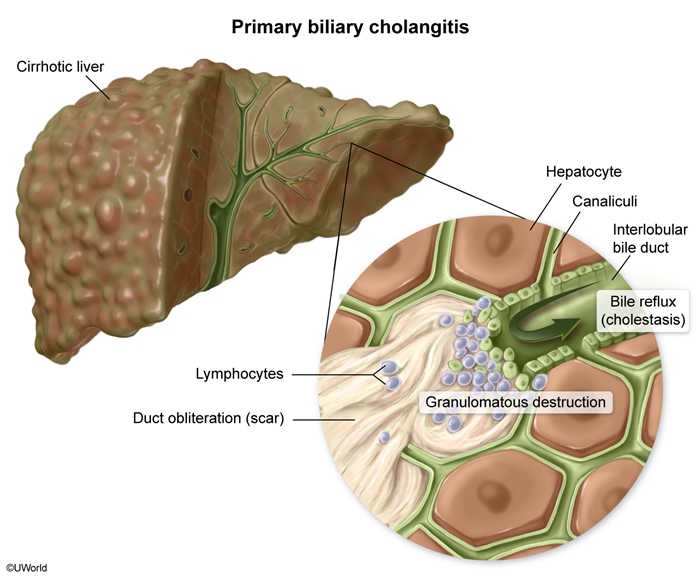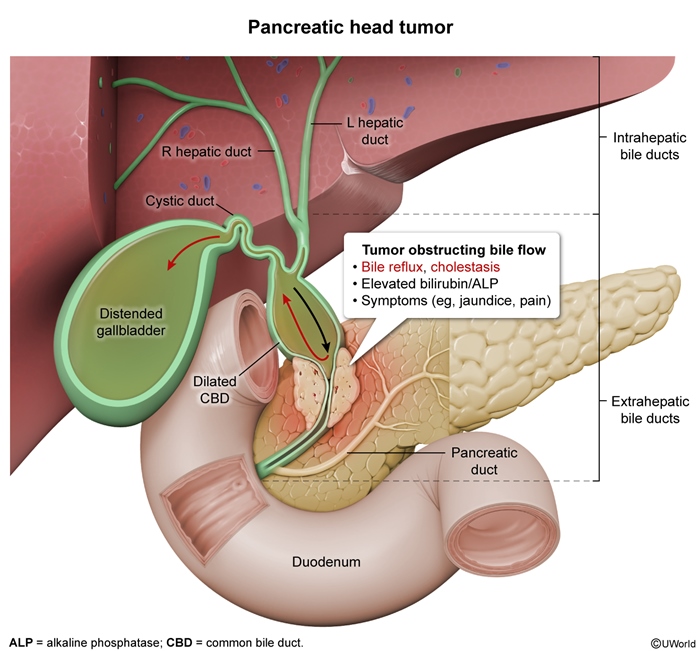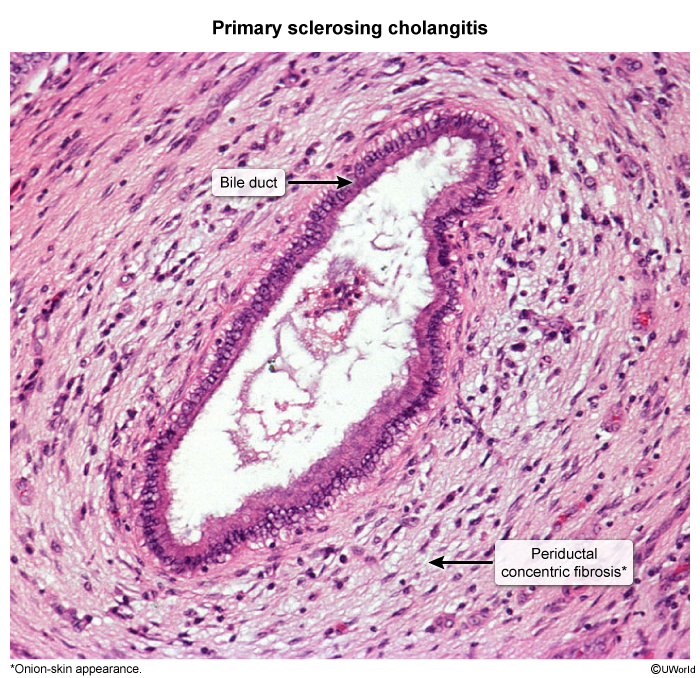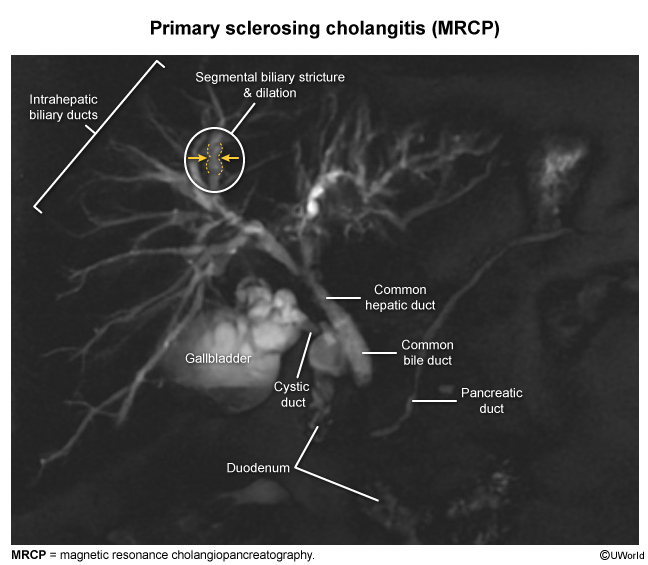Primary Sclerosing Cholangitis
Article Sections
Introduction
Primary sclerosing cholangitis (PSC) is a chronic, progressive biliary disease characterized by fibrosis of the bile ducts. It primarily affects young men and is associated with significant morbidity and mortality.
Pathophysiology
PSC is a chronic disease characterized by inflammation and fibrosis of medium and large intrahepatic and/or extrahepatic bile ducts, resulting in multifocal segmental strictures. Histologic features include fibrous obliteration of the bile ducts and concentric periductal connective tissue deposition, the latter of which resembles an onion skin-like pattern (Image 1). Bile duct fibrosis causes biliary obstruction and ultimately cirrhosis.
Epidemiology
The condition predominantly affects young men (age 30-40). Up to 90% of patients with PSC also have inflammatory bowel disease (IBD), especially ulcerative colitis. Conversely, 5% of patients with IBD have PSC, higher than in the general population.
Continue Learning with UWorld
Get the full Primary Sclerosing Cholangitis article plus rich visuals, real-world cases, and in-depth insights from medical experts, all available through the UWorld Medical Library.
Unlock Full AccessFigures


Images

